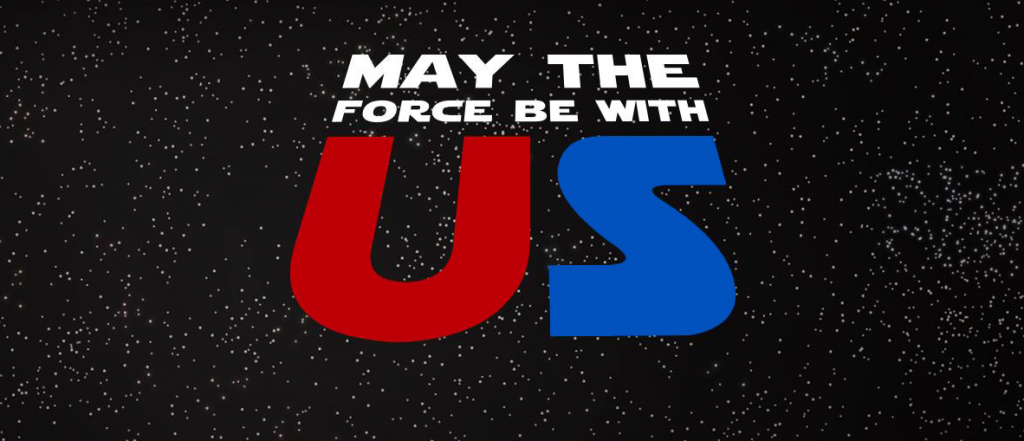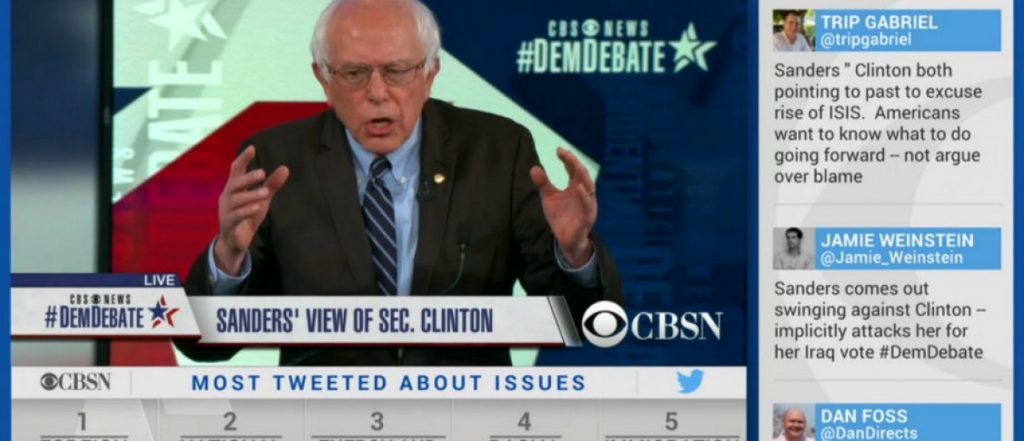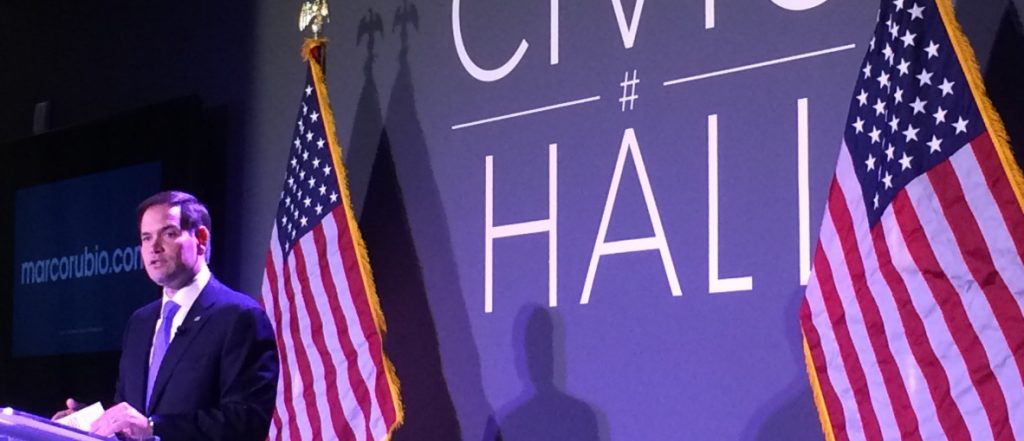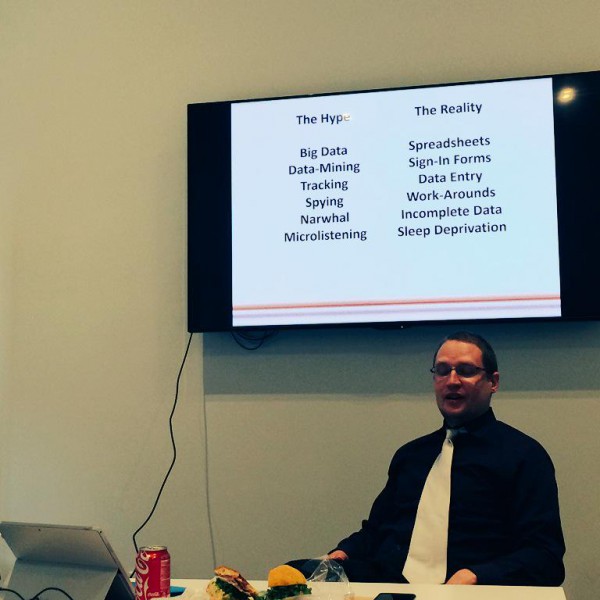In 2007, televised presidential debates reached a new milestone: CNN included questions from the public submitted via YouTube.
“We’re out there to actually see how people who want to be president think and handle issues and questions and people that are slightly outside of their comfort zones,” David Bohrman, then-CNN’s senior vice president, said at the time.
The move was both welcomed as a step in the right direction and criticized for not going far enough, as it was still up to CNN to determine which questions would be posed to the candidates. Four years later, when Fox News teamed up with Google in 2011 during the primary debates to gather questions from the public, users voted up their favorite submissions for Fox to consider, another small step.
But a year later, despite the Commission on Presidential Debates announcing a digital coalition with Google, AOL, and Yahoo to engage the public, there was no guarantee that questions submitted online would be used during the 2012 presidential debates.
Fast forward to 2016, and the media is still figuring out how to push candidates beyond their comfort zone while also remaining an editorial gatekeeper and profitable debate partner. The difference, as we saw this past Sunday during the NBC News-YouTube Democratic debate in South Carolina, is that questions are now being asked by members of the public with social media followings and audiences that rival those of major media companies.
The last Democratic debate before the Iowa caucus included questions from four YouTube creators: writer/actor Franchesca Ramsey (220,000+ subscribers), author and lifestyle entrepreneur Connor Franta (5.2 million+ subscribers), tech reviewer Marques Brownlee (3.1 million+ subscribers) and MinuteEarth (1.2 million+ subscribers), a group channel that creates animated videos about science and environmental issues.
Steve Grove, director of Google News Lab, said this week that the first debate involving YouTube in 2007 was “not necessarily as democratic as it could have been,” because CNN ended up choosing the questions, “but we thought it was a great step forward for getting voices from outside of the Beltway reporter class into these discussions.”
Now, the goal is not only to include new voices but to bring in new audiences as well.
POWER TO THE PEOPLE–AND THE CONTENT CREATORS
“One of the phenomena we’ve seen evolve over the past five or six years,” said Grove, “is the strength and power of online YouTube creators to really marshal extraordinary audiences on their channels, and who can bring new people into political discussions if they themselves get politically involved.”
So instead of looking for well-known creators who cover big-P politics, Grove said YouTube and NBC sought to include creators with interests relevant to debate questions who could also “bring an audience that might not otherwise pay attention.”
Diversity, along with audience size, was a key consideration, especially with the debate taking place near the Emanuel African Methodist Episcopal Church, where a young white shooter killed nine black worshippers in June 2015. Google worked with NBC to compile a list of potential YouTube creators to choose from, with NBC making the final call.
The debate was watched by 12.5 million viewers across all platforms, including 10.2 million who watched live on NBC. It was the second most-watched of the Democratic debates and the only debate of this election cycle so far to livestream on a network’s YouTube channel, among other digital platforms.
The decision to work mostly with creators who are up on current political topics led to questions that reflected a sophisticated understanding of the issues. That has not always been the case, in part because the media tends to pick more strategy-driven questions.
Ramsey, who often blends social commentary with comedy, particularly around race and LGBT issues, asked one of the most pointed questions of the night:
I believe there’s a huge conflict of interest when local prosecutors investigate cases of police violence within their own communities. For example, last month, the officers involved in the case of 12- year-old Tamir Rice weren’t indicted. How would your presidency ensure that incidents of police violence are investigated and prosecuted fairly?
Debate moderator Lester Holt, host of NBC Nightly News, directed the question to Sen. Bernie Sanders. He responded with specifics:
This is a responsibility for the U.S. Justice Department to get involved. Whenever anybody in this country is killed while in police custody, it should automatically trigger a U.S. attorney general’s investigation. Second of all, and I speak as a mayor who worked very closely and well with police officers, the vast majority of whom are honest, hard-working people trying to do a difficult job, but let us be clear. If a police officer breaks the law, like any public official, that officer must be held accountable.
And thirdly, we have got to de-militarize our police departments so they don’t look like occupying armies. We’ve got to move toward community policing. And fourthly, we have got to make our police departments look like the communities they serve in their diversity.
As to the first point, Aaron Blake of the Washington Post called Sanders’ response “a concrete proposal on a question that usually leads to platitudes,” and his colleague Janell Ross wrote, “Many people and organizations—namely police unions—do not agree with this idea. But, it’s noteworthy that Sanders offered up a specific policy/practice reform that if elected, his administration would advance.” In response to Sanders’ third point about demilitarization,
In response to Sanders’ third point about demilitarization, Ross offered more commentary and links for further reading. These comments, and others, appear in the Post’s annotated debate transcript—a terrific feature.
During a post-debate interview with MSNBC, Ramsey praised Sanders’ response, yet added she was disappointed the question was not addressed to other candidates. She made the same point in the comments on her video. Asked why the question of police violence was of importance to her, Ramsey referenced Sandra Bland and said:
I worry at times that doing the right things and being law-abiding citizens really isn’t enough if we live in a country where unfortunately people of color and black people are criminalized and seen as a threat, and then our lives are not taken seriously when and if something happens.
Of course, good questions do not guarantee nuanced responses. Brownlee’s question about encryption technology and privacy vs. security failed to elicit the sort of conversation one might have hoped for. Time magazine’s Haley Sweetland Edwards wrote that none of the candidates “appeared to understand the controversy over encryption technology that, in recent months, has pitted top national-security officials against the CEOs of Silicon Valley’s biggest tech firms.”
MinuteEarth’s video about climate change and America’s energy future sparked more digs against Republican presidential candidates than detailed discussion, but it wasn’t MinuteEarth’s fault; the candidates weren’t pushed on the issue. Still, the video, along with the candidates’ responses, has attracted more than 171,000 views on MinuteEarth’s YouTube channel.
Viewers can also watch an alternative video on greenhouse gasses that MinuteEarth said it created at NBC’s request, in case the candidates had already addressed the first question. That video has received more than 137,000 views since being posted Jan. 19.
Franta, 23, who has the most subscribers among those selected, raised a question about reaching out to younger voters. (Note to all candidates: A tweet from Franta encouraging his followers to watch the debate was retweeted more than 2,800 times.)
“I know Senator Sanders is pretty popular among my peers,” Franta asked, “but what I want to know is, how are all of you planning on engaging us further in this election?”
It was the least political question asked by any of the YouTube creators, but Holt directed it only to Clinton (who led off by congratulating Fanta on his 5 million viewers). As if the horse-race aspect Holt set up wasn’t already clear, he included a follow-up: “Why is Sen. Sanders beating you to 2 to 1 among younger votes?”
THE CANDIDATES, NOW TRENDING
Throughout the debate, Google provided snapshots of search trends—such as a graphic showing a 175-percent increase between 2004 and 2016 for “how to fix Washington”—along with real-time updates of trending (or spiking) questions about each candidate and the top-searched issues. (Google today announced it’s teaming up with Fox News for the next Republican debate on Jan. 28. and will integrate these same tools.)
You can still view data for the most-searched candidate by county, and follow search interest in candidates for each minute of the debate:
Moderator Lester Holt at one point noted that Google searches for “black lives matter” had surpassed searches for “civil rights movement” in 2015 and had become the top trending political issue in South Carolina.
Search trends over time are obviously useful to both the candidates and the media, said Grove. The data can also help voters understand which topics matter most to people in their state or across the country.
“I think the unique thing about Google Search is that it is an unvarnished look at the curiosities of people,” said Grove, “and we’re able to anonymize and aggregate that data. These are not public social media posts that are a sort of manicured version of what you want people to think you care about—this is what you’re actually curious about.”
During a post-debate interview with MSNBC’s Chuck Todd, Daniel Sieberg, global head of media outreach at Google News Lab, noted that Sanders was the most searched-for candidate during the debate, but it was impossible to know if the searches reflected positive or negative attitudes. Goldman Sachs spiked around 10 p.m. when Sanders referenced big banks, and there was a lot of interest around Iran, healthcare, and gun control.
The real-time data not only highlights the types of issues that spark interest, but it also shows that debate viewers are doing more than just watching—they’re researching. Grove said that gives him hope that people really do care about the issues, even though we’re conditioned to think elections are built on controversy and conflict.
LIVE FROM THE WHITE HOUSE
Two days before the Democratic debate, another trio of young YouTube creators—Destin Sandlin, Ingrid Nilsen, and Adande Thorne—interviewed President Obama. The video posted to the White House YouTube channel has been viewed more than 1.2 million times in six days.
The wide-ranging discussion, which streamed live, drew on both the personal and the political, from terrorism to Kendrick Lamar’s new album and the “luxury tax” on menstrual products. The young interviewers followed their passions, drawing Obama into lively and occasionally poignant conversations. While there’s some overlap with issues that are part of the national discussion, there’s also a refreshing unconventionality.
“The press corps that follows the president and follows the election has a very important role, because they have all the context and know what happens every single day in the campaign, and they can leverage that accumulated knowledge to ask important questions,” said Grove. The flip-side, of course, is that “outsiders aren’t bound to those same conventions.”
This marks the seventh—and likely the final—YouTube interview at the White House with Obama. The video kicks off with a historical review, hosted by Grove, that reveals how much technology has changed and, with it, our expectations for access and authenticity. In 2010, it was the top-voted video questions. In 2012, it was Google Hangouts. In 2016, it’s #YouTubeAsksObama, with famous creators assuming the role of the press.
The same is true, kind of, on the campaign trail. Grove noted that YouTube creator GloZell Green interviewed Clinton last month (Green also interviewed Obama at the White House in January 2015), and he predicted that we’ll see more YouTube interviews throughout the election cycle.
“These creators have enormous audiences—audiences, many times, that dwarf those of cable news stations. So a hit with a Swoozie or an Ingrid or a Destin can be, in some ways, even more valuable than a hit on cable news,” said Grove.
“If you’re a candidate in today’s political environment, you’d be smart to pay attention to it,” he added, “because it’s a real opportunity to engage with a whole new audience, often times a younger audience, around topics that matter to them.”
And who knows better than a YouTube creator how to thank fans and draw attention.

Sign up for the twice-monthly Rethinking Debates newsletter for the latest posts and news.











